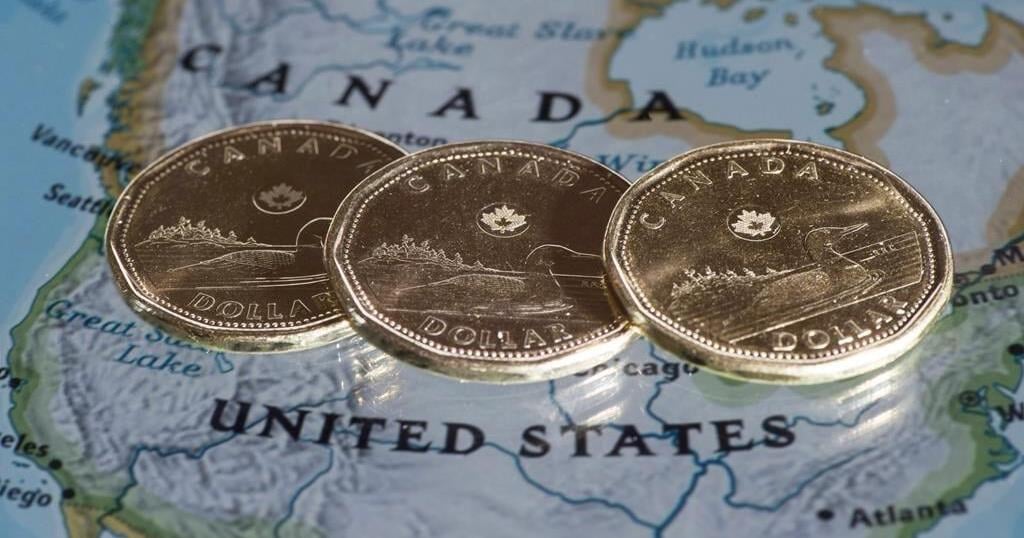Experts say Donald Trump’s election victory could shift interest rate policy in the U.S. as his promised policies risk higher inflation, which could ultimately have implications for Canadian rates and the loonie.
Among those promises are large tariffs on imported goods, especially from China, as well as lower tax rates and lighter regulation.
Trump has promised that with him as president, “inflation will vanish completely.” But some have raised concern that his economic policies could actually put upward pressure on inflation, and in turn, slow the pace of interest rate cuts expected from the U.S. Federal Reserve.
“Tradition tells us that that increase in tariffs will increase inflation in the U.S.,” said Sheila Block, an economist with the Canadian Centre for Policy Alternatives.
Higher inflation would mean the U.S. Federal Reserve could be slower to cut interest rates, and markets are already shifting their bets on how low the central bank is likely to go on rates.
“If you’re enacting tariffs and pressing hard on the accelerator and creating job shortages and scarcity and wage inflation by running the economy hot, then the Fed won’t necessarily have as much license to cut rates as soon or as deeply as they would otherwise,” said Brian Madden, chief investment officer with First Avenue Investment Counsel.
The U.S. central bank cut its key rate as expected on Thursday by a quarter of a percentage point, lowering its benchmark overnight interest rate to the 4.5 per cent to 4.75 per cent range.
Following the election, markets started to price in a slightly higher neutral rate for the Fed, according to a TD Economics report Wednesday. That means markets believe the Fed will end its cutting cycle at a higher rate than previously anticipated.
“We are changing our forecast for the Fed, as higher inflation results in a slower pace of rate cuts in 2025,” the TD report said — with the Fed ending 2025 with its key rate at 3.5 per cent instead of three per cent, before reaching three per cent in 2026.
That means “we don’t see any change to the neutral rate, just that the Fed gets there later,” the economists wrote.
As the Bank of Canada works through its own rate cuts to address the cooling economy, experts say it has to keep the U.S. economy and the Fed’s policy in mind.
“As the value of the Canadian dollar is reduced relative to the U.S. dollar, that is also inflationary, because … many things that we import are denominated in U.S. dollars,” said Block.
“I think … that would be a factor that would make the Bank of Canada more hesitant about cutting rates too quickly,” she said.
However, Madden thinks the effect of a weaker loonie on Canadian inflation won’t be massive.
“On the one hand, imported goods would cost more because you’re buying them with cheaper dollars. On the other hand, Canadian exports into global markets, in the U.S. in particular, would be more competitive given the weaker Canadian dollar, which could stimulate demand,” he said.
— With files from The Associated Press
This report by The Canadian Press was first published Nov. 8, 2024.
